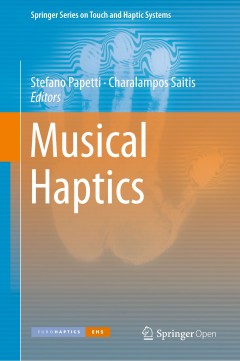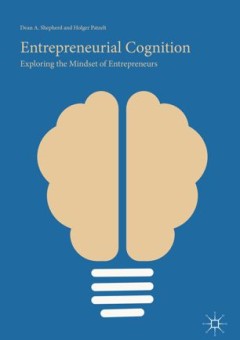Filter by

Robotics, AI, and humanity : science, ethics, and policy
This open access book examines recent advances in how artificial intelligence (AI) and robotics have elicited widespread debate over their benefits and drawbacks for humanity. The emergent technologies have for instance implications within medicine and health care, employment, transport, manufacturing, agriculture, and armed conflict. While there has been considerable attention devoted to robot…
- Edition
- -
- ISBN/ISSN
- 9783030541736
- Collation
- x, 269p. : ill.
- Series Title
- -
- Call Number
- 174.9629892 ROB r

Inhibitory control training: a multidisciplinary approach
Inhibitory control is a critical neurocognitive skill for navigating cognitive, social, and emotional challenges. It rapidly increases during the preschool period and is important for early cognitive development, as it is a crucial component of executive functioning, self-regulation, and impulsivity. Inhibitory control training (ICT) is a novel intervention in which participants learn to associ…
- Edition
- -
- ISBN/ISSN
- 9781838805272
- Collation
- xiv, 135p. : ill.
- Series Title
- -
- Call Number
- 153 INH i

The challenge of chance : a multidisciplinary approach from science and the h…
This book presents a multidisciplinary perspective on chance, with contributions from distinguished researchers in the areas of biology, cognitive neuroscience, economics, genetics, general history, law, linguistics, logic, mathematical physics, statistics, theology and philosophy. The individual chapters are bound together by a general introduction followed by an opening chapter that surveys 2…
- Edition
- -
- ISBN/ISSN
- 9783319263007
- Collation
- vii, 276p. : ill.
- Series Title
- -
- Call Number
- 123.3 KLA t

Musical haptics
This Open Access book offers an original interdisciplinary overview of the role of haptic feedback in musical interaction. Divided into two parts, part I examines the tactile aspects of music performance and perception, discussing how they affect user experience and performance in terms of usability, functionality and perceived quality of musical instruments. Part II presents engineering, compu…
- Edition
- -
- ISBN/ISSN
- 9783319583167
- Collation
- xv, 285p. : ill.
- Series Title
- -
- Call Number
- 004.77 MUS m

Entrepreneurial cognition : exploring the mindset of entrepreneurs
This open access book investigates the inter-relationship between the mind and a potential opportunity to explore the psychology of entrepreneurship. Building on recent research, this book offers a broad scope investigation of the different aspects of what goes on in the mind of the (potential) entrepreneur as he or she considers the pursuit of a potential opportunity, the creation of a new or…
- Edition
- -
- ISBN/ISSN
- 9783319717821
- Collation
- xiii, 281p. : ill.
- Series Title
- -
- Call Number
- 658.421 SHE e

Cyberpragmatics : internet-mediated communication in context
Cyberpragmatics is an analysis of Internet-mediated communication from the perspective of cognitive pragmatics. It addresses a whole range of interactions that can be found on the Net: the web page, chat rooms, instant messaging, social networking sites, 3D virtual worlds, blogs, videoconference, e-mail, Twitter, etc. Of special interest is the role of intentions and the quality of interpretati…
- Edition
- -
- ISBN/ISSN
- 9789027256195
- Collation
- xic, 353p. : ill.
- Series Title
- -
- Call Number
- 401.450285 YUS c

Cognition, language and aging
Age-related changes in cognitive and language functions have been extensively researched over the past half-century. The older adult represents a unique population for studying cognition and language because of the many challenges that are presented with investigating this population, including individual differences in education, life experiences, health issues, social identity, as well as gen…
- Edition
- -
- ISBN/ISSN
- 9789027267313
- Collation
- viii, 248p. : ill.
- Series Title
- -
- Call Number
- 408.46 COG c
 Computer Science, Information & General Works
Computer Science, Information & General Works  Philosophy & Psychology
Philosophy & Psychology  Religion
Religion  Social Sciences
Social Sciences  Language
Language  Pure Science
Pure Science  Applied Sciences
Applied Sciences  Art & Recreation
Art & Recreation  Literature
Literature  History & Geography
History & Geography